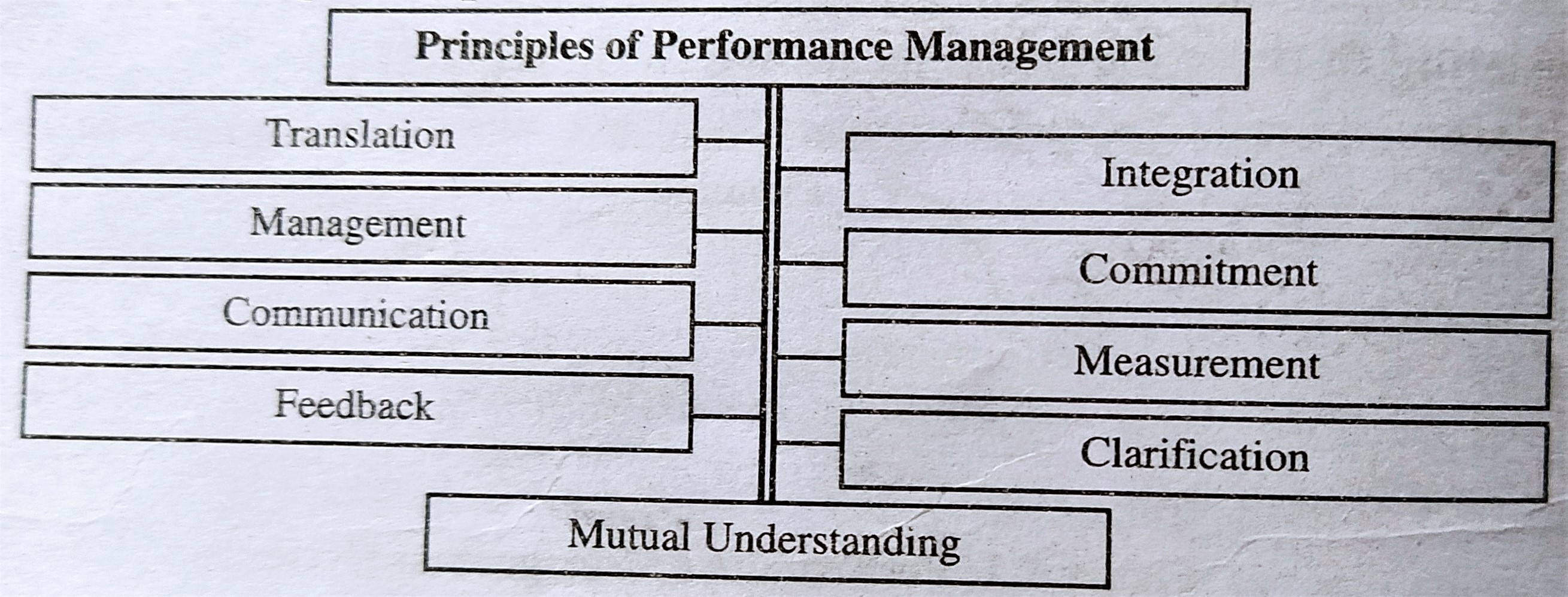The various principles of performance management are discussed below:
- Translation: The translation or conversion of corporate objectives into team, departmental, divisional, and individual objectives is done with the help of this principle of performance management.
- Integration: In order to achieve a higher level of organizational, individual, and team performance, this can be seen as a regular and integrating process.
- Management: In order to overcome the various hurdles and barriers which come in the way of managerial performance, effective and contextual management of the external environment is facilitated by it.
- Commitment: In comparison to coercion and control, the main focus of performance management is on consensus and cooperation. The commitment towards the organizational, team, and individual performance is the main objective,
- Communication: A transparent and honest managerial style is needed in it, which is capable of facilitating two-way communication between the managers and the employees.
- Measurement: All the performances are evaluated and measured as per the mutually agreed objectives.
- Feedback: For the performance of managers, teams, departments, and individuals, the organization should have a well-established feedback system. In order to have better performance management, continuous monitoring, and regular feedback loops must be ensured.
The experience and knowledge which is received on the job by the various employees Can be implemented to change the corporate goals with the help of feedback loops. - Clarification: One of the most important elements of developing a business is establishing corporate objectives. The clarity of organizational goals and objectives is facilitated to all the employees by the principle of clarification.
All the organizational objectives should be clearly and precisely determined by the manager, and he must ensure that all these goals are well-communicated to the employees, and the expectations of the organizations should also be communicated. The organizational goals should be transformed into individual, divisional, departmental, and team goals. - Shared Understanding: A mutual understanding about what are the measures which must be employed to improve performance is developed along with communicating the methods of achieving it.
The accomplishment of the organizational objectives, as well as the development of employees, can be ensured by performance management with the help of mutual understanding.
